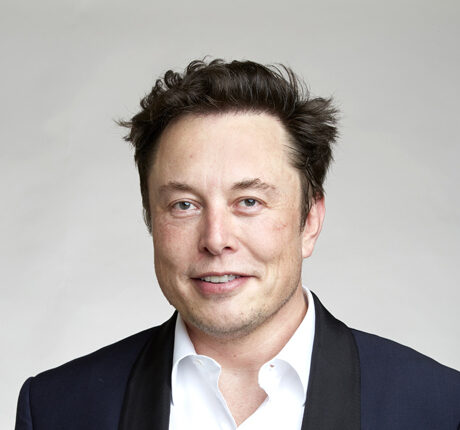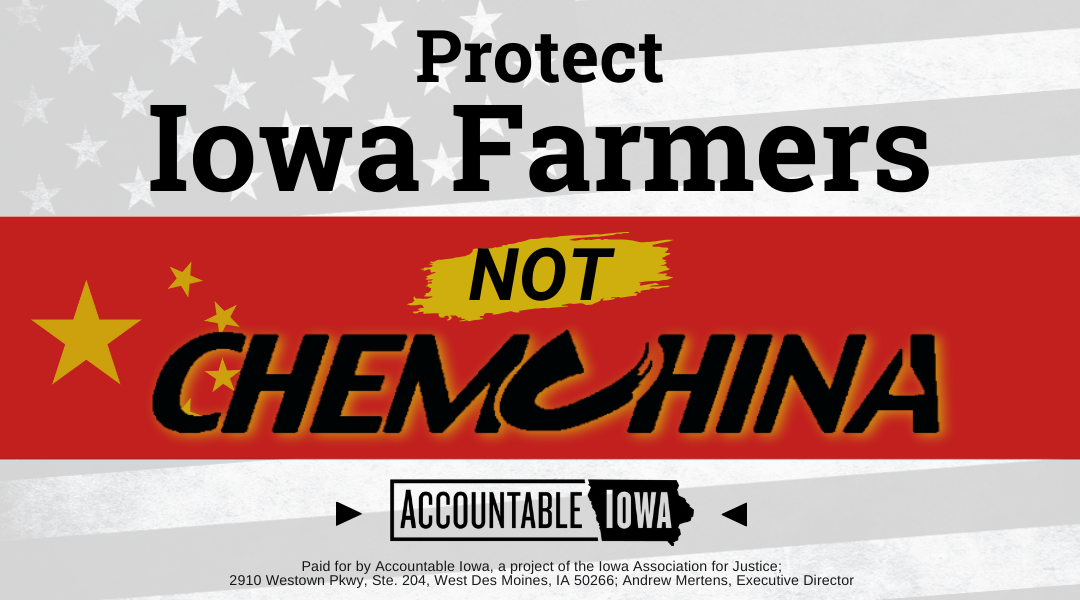Elon Musk is the rare person in modern times who is revered by those on both sides of the political aisle. And for all the wrong reasons. Progressives see him as saving the planet by producing energy efficient electric cars, household batteries, and solar panels. Conservatives see him as a pioneering technical innovator who has made his fortune through hard work and free markets. In reality, he is a genius, but not for any of those reasons. Let’s look behind the curtain at some of his “achievements.”
Automobile companies’ financials and production
Tesla just announced it had delivered an impressive 936,000 autos in 2021. There’s no doubt that Elon Musk has created a huge company and spurred the development of electric vehicles. But while Tesla delivered almost 1 million cars this past year, in 2016 he boasted that Tesla would deliver 1 million cars in 2020. He didn’t. And he still didn’t do it this year.
The table below compares Tesla’s financials to the largest automobile manufacturers in the world. Tesla’s sales and earnings don’t come close to the top automobile companies. And yet, Tesla’s stock is valued at about 68% more than all of the listed companies combined, even though combined they have 24 times the revenue and 23 times the earnings. I want to emphasize that: At only 4% of the total profits and earnings, Tesla is valued at almost twice these top 7 car manufacturers combined and more than all other car manufacturers combined.
| Company | 2021 Sales (billions) | 2021 Growth | 2021 Earnings (billions) | Valuation (billions) |
| Tesla | $47 | 49% | $5 | $1,100 |
| Toyota | $274 | 18% | $38 | $255 |
| Volkswagen | $288 | 14% | $29 | $127 |
| Ford | $135 | 6% | $10 | $81 |
| GM | $131 | 7% | $15 | $83 |
| Hyundai | $98 | 11% | $7 | $40 |
| Honda | $126 | 11% | $11 | $48 |
| Nissan | $76 | 13% | $3 | $19 |
The table below shows production numbers for these car manufacturers for 2020. Going by those numbers, Tesla produces one hundredth of the total number of cars of those other manufacturers and only 0.8% of the entire world market. In fact, Tesla only has about 14% of the world EV market, and that share has been dropping as the major manufacturers ramp up their own EV offerings. Even if every car owner on the planet stopped driving their gasoline cars and bought a Tesla, it couldn’t justify this valuation.
| Company | 2020 Production |
| Tesla | 500,000 |
| Toyota | 9,500,000 |
| Volkswagen | 9,300,000 |
| GM | 6,800,000 |
| Hyundai | 6,400,000 |
| Honda | 4,800,000 |
| Ford | 4,200,000 |
| Nissan | 4,000,000 |
Tech companies’ financials
Some people argue that comparing Tesla to automobile manufacturers is simply wrong because Tesla is really a tech company. OK, let’s compare Tesla to the largest tech companies.
Tesla is currently valued at over 1 trillion dollars. Very few companies in history have ever reached that valuation. Let’s look at the data about the biggest tech companies in the chart below. When these companies recently hit that 1 trillion dollar valuation, their sales were at least three times that of Tesla and their profits were at least 8 times as much.
| Company | Year | Sales (billions) | Growth | Earnings (billions) | Valuation (billions) |
| Tesla | 2021 | $47 | 49% | $5 | $1,100 |
| Apple | 2019 | $239 | 10% | $69 | $1,300 |
| Amazon | 2019 | $268 | 2% | $71 | $920 |
| 2019 | $173 | 19% | $40 | $921 | |
| 2021 | $109 | 30% | $47 | $933 | |
| Microsoft | 2019 | $134 | 13% | $52 | $1,200 |
Some have argued that Tesla is growing faster than these other companies. Maybe so. Smaller companies generally grow faster than larger companies. The table below shows the growth rates and valuations for these companies when they were earning around the same amount as Tesla is now. As you can see, most of them had roughly the same growth rate, much higher profits, and much lower valuations.
| Company | Year | Sales (billions) | Growth | Earnings | Valuation (billions) |
| Tesla | 2021 | $47 | 49% | $5 billion | $1,100 |
| Apple | 2009 | $42 | 27% | $10 billion | $191 |
| Amazon | 2011 | $48 | 41% | $1 billion | $79 |
| 2012 | $48 | 26% | $14 billion | $488 | |
| 2018 | $55 | 38% | $25 | $374 | |
| Microsoft | 2006 | $46 | 11% | $16 | $292 |
And a key difference between these companies and Tesla, is that no one is going to throw away their Tesla after a year or two and buy another one. No one is going to keep paying every day or week for new products for their Tesla. Advertisers are not going to pay Tesla every time someone drives one. Tesla’s business model is completely different from these companies.
Obviously, Tesla investors have drunk the Musk Kool-Aid, perhaps spurred on by people like Cathie Wood at Ark Invest who has been touting Tesla as a growth stock while quietly selling shares at a huge profit. Let’s look at some other factors to question Elon Musk’s mythical levels of achievement.
Where does Tesla’s money come from?
If Tesla is selling so fewer cars than the other car companies, where does its revenue come from? And why is its profit margin so high? That’s at least partly due to government subsidies and sales of non-existent products.
Government Subsidies of Cars
Only a small amount of Tesla’s revenue comes from solar cells and batteries. Tesla Energy had $2 billion revenue in 2020, a small percentage of overall revenue, but also in decline. Plus, Tesla is under investigation by the SEC, yet again, because the devices have been known to catch fire as they did at a Walmart store and an Amazon warehouse. A small amount of their revenue comes from energy products like solar cells and batteries.
Zero emission (ZEV) credits account for about a billion dollars of revenue and profit in 2020. These are government subsidies for electric cars that Tesla receives, but also that it sells to other car companies who don’t produce electric vehicles. In addition to ZEV credits, Tesla sold another $0.6 billion in Green House Gas (GHG) credits in 2020. That’s $1.6 billion in revenue, 5% of its total, that the government is forcing other car companies to pay to Tesla. And it’s also pure profit. This revenue from government regulatory credits has been growing at an average annual growth rate of 85% since 2012, much higher that Tesla’s overall revenue growth.
Government Subsidies of Manufacturing Plants
Tesla further relies on our taxpayer dollars when building gigantic manufacturing plants. Tesla received $1.3 billion in tax breaks from Nevada, $1 billion from New York, and $65 million in tax breaks from Texas, as well as federal and state rebates to Tesla’s customers. Other subsidies come from governments around the world including billion dollar loans from China. And while Musk claims that Tesla paid off the China loans early, Musk has been known to misrepresent the facts about Tesla’s finances, and Tesla’s accounting practices have often been vague and controversial, leading to multiple investigations by the Securities and Exchange Commission (SEC).
All of Musk’s companies, including Tesla, have received billions of dollars in government subsidies, but Elon Musk suddenly dislikes President Biden’s Build Back Better plan and other government subsidies now that his company isn’t eligible for them but his competitors are. Elon Musk is a progressive when he’s getting government aid and a free-market capitalist when that aid helps his competitors.
Pre-sales
The cult of Musk also believes in his vision so much that they order cars with no production date in view. For example, over 1.25 million of his followers pre-ordered the Tesla Cybertruck, which at $100 for a non-existent product added $125 million to Tesla’s revenue and earnings. More cult followers pre-paid for solar roof panels that Elon Musk announced years before he discovered that Tesla had made “significant mistakes” in judging how difficult it would be to actually install the solar tiles. It’s not clear how many people ordered up to $70,000 dollars in non-existent solar roof tiles, or how much of a down payment they paid before the price was unexpectedly jacked up to twice that amount, but yet another nonexistent product appears to have added hundreds of millions of dollars to Tesla’s revenue and profits.
Tesla customers also paid for service plans that were later discontinued, but Tesla kept their money. Tesla’s shipping delays can be many months, even as much as a year after it receives the down payment from buyers, giving Tesla additional revenue and earnings during that time. Tesla quietly dropped its “no questions asked seven-day return policy” without notifying users, making it difficult for customers to return cars that Consumer Reports used to report among the most reliable cars and now reports among the least reliable. Not to mention the numerous recalls of cars for dangerous software bugs, Tesla’s tendency to burst into flames upon impact, and the multiple investigations of Tesla cars by the National Highway Traffic Safety Association (NHTSA).
Fantasy Self-Driving
How long has Musk been promising self-driving cars? He originally announced “full self-driving (FSD) capability” in 2016 and further claimed that Tesla would demonstrate a cross-country autonomous drive from Los Angeles to New York, “without the need for a single touch, including the charger,” by the end of 2017. Over five years later, such a capability doesn’t exist, yet cultists are still paying $10,000 extra for this imaginary feature that is no more advanced than what is currently available from other manufacturers. In fact, it’s arguably much worse given the fatalities it has caused.
As an electrical engineer who closely follows the technology, I can tell you that Musk’s fantastic boasts about Tesla’s FSD technology are just fantasy. Unless Tesla has managed to overcome challenges with artificial intelligence, sensors, and computer processing power beyond what is currently known from state-of-the-art research at the major university and industry research centers on the planet, Tesla is still not close to offering the FSD described in his 2016 announcement.
Other Myths About Tesla
The number of myths about Tesla abound and are increasing monthly, so it’s hard to address them all before another springs from the depths of social media via Elon Musk’s tweets. Here is my attempt to address the major ones.
Not Helping the Planet
While electric cars certainly reduce air pollution, the overall effects on renewable energy, carbon emissions, and greenhouse gases is very hard to determine, especially since Tesla is more opaque about its greenhouse-gas emissions. In fact, General Motors and Ford are much more transparent. In 2018, Tesla was fined by the Bay Area Air Quality Management District for malfunctioning burners at its Fremont plant that had emitted high levels of nitrogen oxide. The Environmental Protection Agency has been investigating Tesla for failing to provide records demonstrating compliance with the Clean Air Act of 1963. And electric vehicles don’t eliminate greenhouse gases or fossil fuels, but rather push these requirements back to the mostly fossil fuel electric plants that must meet increased energy demand through the electric grid to charge the cars.
Furthermore, the batteries used in electric vehicles have their own serious environmental impacts. While the newer lithium batteries are highly recyclable, manufacturers are secretive about what goes into their batteries, making it harder to actually recycle them, so it’s suspected that most lithium batteries are not recycled. More and more lithium is mined in Australia and then sent to China for processing using dirty electricity such as coal while China’s poor working conditions, use of slave labor, and horrible environmental record goes unchecked. In 2016, dead animals were found in and around the Liqi River, where a toxic chemical leaked from China’s Ganzizhou Rongda Lithium mine in occupied Tibet.
Did Not Give Away Its Patents
In 2014, Elon Musk announced that all of the patents displayed on the wall in their Palo Alto headquarters were removed. The reason, he explained, was that Tesla’s “intellectual property landmines [lay] behind us to inhibit others” from succeeding in the EV space. “Too often these days,” he continued, “they serve merely to stifle progress, entrench the positions of giant corporations and enrich those in the legal profession, rather than the actual inventors… We believe that applying the open source philosophy to our patents will strengthen rather than diminish Tesla’s position in this regard.” On that same day, Tesla pledged, “that it will not initiate patent lawsuits against anyone who, in good faith, wants to use its technology.”
First, notice that it’s only Big Tech that complains that patents protect the big companies and stifle the little ones. Does that make sense to any rational person? When has any large company wanted to do away with a process that helped them but hurt their competitors? In fact, for many years Big Tech has been successfully lobbying Congress and influencing the courts to weaken patent laws, and they don’t do it to help the small inventors who want to compete with them. Patents actually help most the individual inventors, entrepreneurs, and startup companies.
Did Tesla actually give up its patents? Not at all; it’s all in the fine print. What does it mean to use Tesla’s patents “in good faith”? As Tesla starts suing competitors, we’ll find out. Tesla actually created a mousetrap with an enticing cheese slice in the middle. “Come in and use our patented technology all you want,” they exclaim while leaving patents out there as enticement. If Tesla were earnest, it would remove the trap altogether—throw the cheese into an open field. Tesla could accomplish this by officially abandoning its patents with the Patent Office and publishing their inventions in trade magazines. Instead, Tesla hypocritically remains one of the largest filers of patents annually, with 647 issued patents and 444 applications filed between 2004 and December 16 of 2021, just a few days ago.
Not Concerned About Human Rights
Tesla has virtually reached saturation in America and Europe and has made clear that its goal is to expand in China, despite China’s long list of humans rights violations including its occupation of Tibet, its repression of Hong Kong, its military threats against Taiwan, and the oppression and internment of religious and ethnic minorities such as the Muslim Uyghurs and the Falun Gong.
Despite all this, Tesla has taken massive loans from the Chinese government, and Elon Musk has been effusive in his praise for the Chinese government, calling its economic prosperity “truly amazing” and declaring it a “global leader in digitalization” and its automakers “the most competitive in the world” while promising to “continue to expand [Tesla’s] investment and R&D efforts in China.” Despite the praise, Chinese customers have been protesting the poor quality of the cars, and the Chinese government is currently investigating the company and restricting its sales.
I predict that China will eventually accuse Tesla of having committing crimes or violating government regulations and take over its China manufacturing plants. This is common in Communist countries such as when Venezuela took over US oil projects. Even now the Chinese government is exerting increasing control over its own tech companies like Alibaba.
Note: End-of-year number are coming out and will continue to come out over the next month, changing the exact figures, but the analysis remains essentially the same. Also, Elon Musk’s announcements and Tesla’s numbers are self-reported and difficult to verify because of Tesla’s lack of transparency.
Litigations
Over the years Tesla as a company, and Elon Musk personally, have faced many, many lawsuits and investigations over Tesla’s accounting practices, misleading announcements, false advertisements, and general nastiness. Wikipedia has a partial list that includes 35 cases. Some of the more well-known ones allege the following:
- Elon Musk’s tweeted false information about the company’s stock, in violation of SEC restrictions, 2021.
- Class action lawsuit over Tesla Solar Roof tile price sudden increases, 2021.
- Tesla Twitter critic Randeep Hothi sued Musk for defamation, 2020.
- Tesla’s advertised Full-Self Driving technology allegedly does not work and Tesla hides its many failures, 2020.
- Walmart sued Tesla over solar panel fires caused by ‘negligence,’
- Musk was sued for defamation for calling professional diver Vernon Unsworth a pedophile after he had rescued children trapped in a cave when Unsworth stated that Musk’s submarine invention didn’t work, 2019.
- Musk falsely tweeted that he had “funding secured” to take Tesla private, which immediately pumped up Tesla’s stock value, 2018
- Tesla allegedly acquired SolarCity under false pretenses to enrich the founders, Musk’s cousins Peter and Lyndon Rive, 2016.
- Tesla founder Martin Eberhard sued Tesla and Musk for slander, libel, and breach of contract, 2009.
What is Elon Musk?
So what, exactly, is Elon Musk?
He’s not an engineering genius. He has no degrees in engineering, and his work at all of his companies was in management, not engineering development. Tesla was founded by engineers Martin Eberhard and Marc Tarpenning, not Musk who was one of its early investors.
Elon Musk is not saving the planet. While electric vehicles produce less pollution, their overall carbon footprint, taking into account fossil fuel electricity plants, is not necessarily reduced. Plus Tesla’s batteries are mined under situations protested by human rights groups, are difficult to dispose of, and can leak dangerous chemicals into the earth.
He’s not a progressive. His recent public fights with far-left Senator Elizabeth Warren and Bernie Sanders shows that his ideology is not progressive. He feels he is paying too much in taxes, for example, and that government regulation has gone too far, particularly with respect to COVID, masking, and social distancing.
He’s not a libertarian. He has taken significant amounts of taxpayer money over many years to support his company despite his current disavowals now that his company is no longer eligible for many subsidies and loans but his competitors are.
He is by no means a nice person given the multiple lawsuits against him personally, and his notoriously mean statements on Twitter and elsewhere.
In my opinion, Musk is not a great businessman either, because I believe his business is a house of cards that eventually will fall. The accounting is questionable, the treatment of employees is not conducive to maintaining a loyal workforce, the product is becoming less reliable as production increases, the company is relying on huge government subsidies and loans, and its overall growth is slowing.
Perhaps he’s a visionary. He has certainly built one of the first major automobile companies in a long time and the first major electric vehicle company. Visionaries don’t have to be great engineers. Ray Kroc of McDonald’s wasn’t an engineer, but he saw an opportunity and worked tirelessly to make it successful. You don’t have to be a nice guy. Donald Trump built an extensive real estate empire, and became president of the United States, and he can be pretty mean. Steve Jobs built Apple into one of the largest and most iconic tech companies in history and was neither an engineer nor a nice guy. But all of these people built products that were reliable, safe, and lasting. Time will tell whether Elon Musk passes that test. I suspect he won’t.
About the author
Bob Zeidman is the creator of the field of software forensics and the founder of several successful high-tech Silicon Valley firms including Zeidman Consulting and Software Analysis and Forensic Engineering. His latest venture is Good Beat Poker, a new way to play and watch poker online. He is the author of textbooks on engineering and intellectual property as well as screenplays and novels. His latest novel is the political satire Animal Lab, a modern sequel to George Orwell’s classic Animal Farm.
















